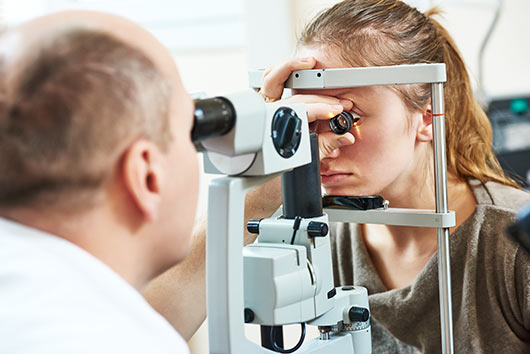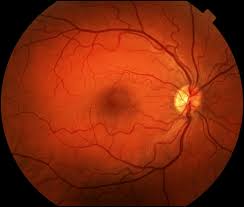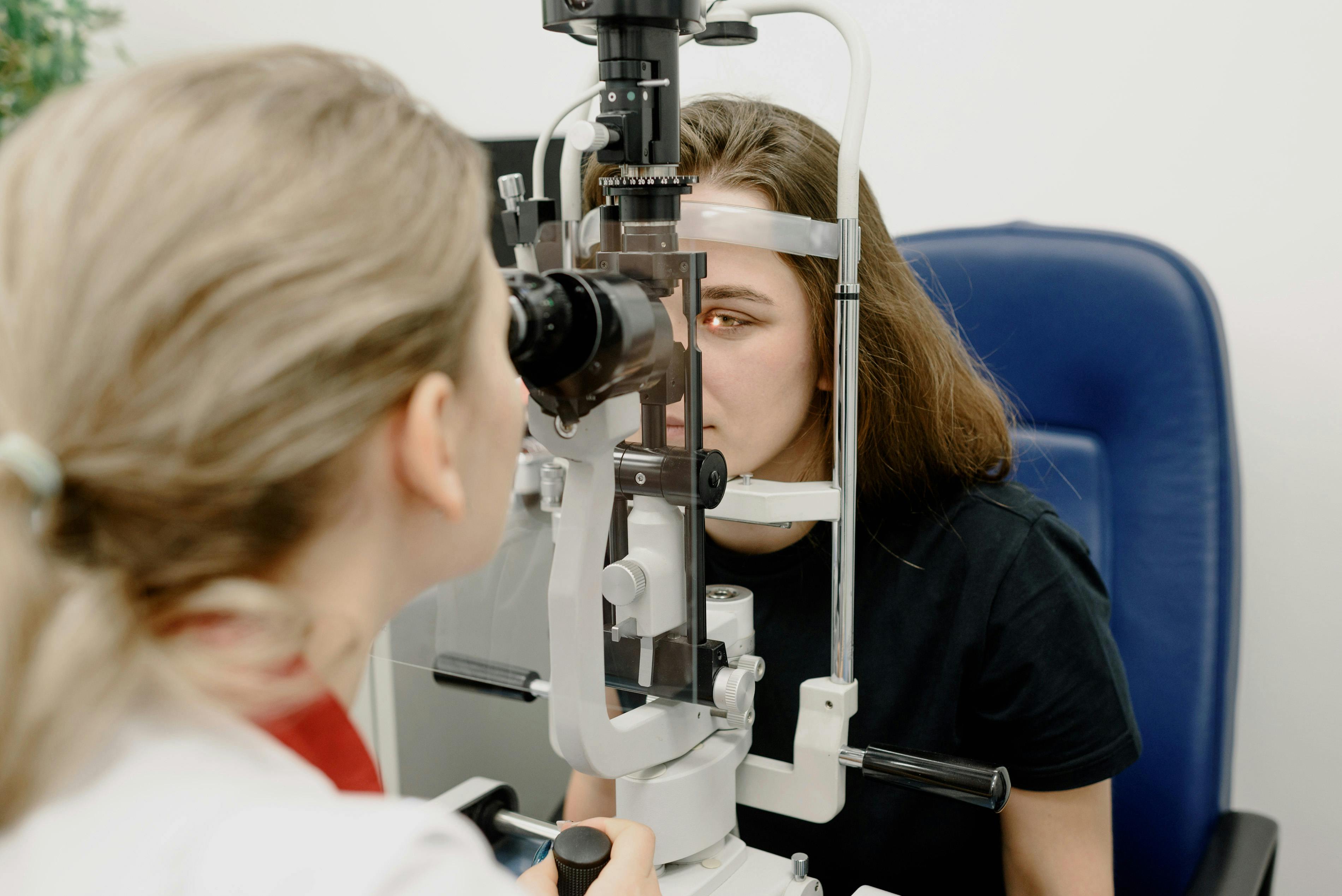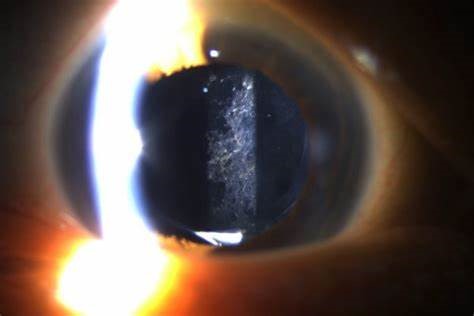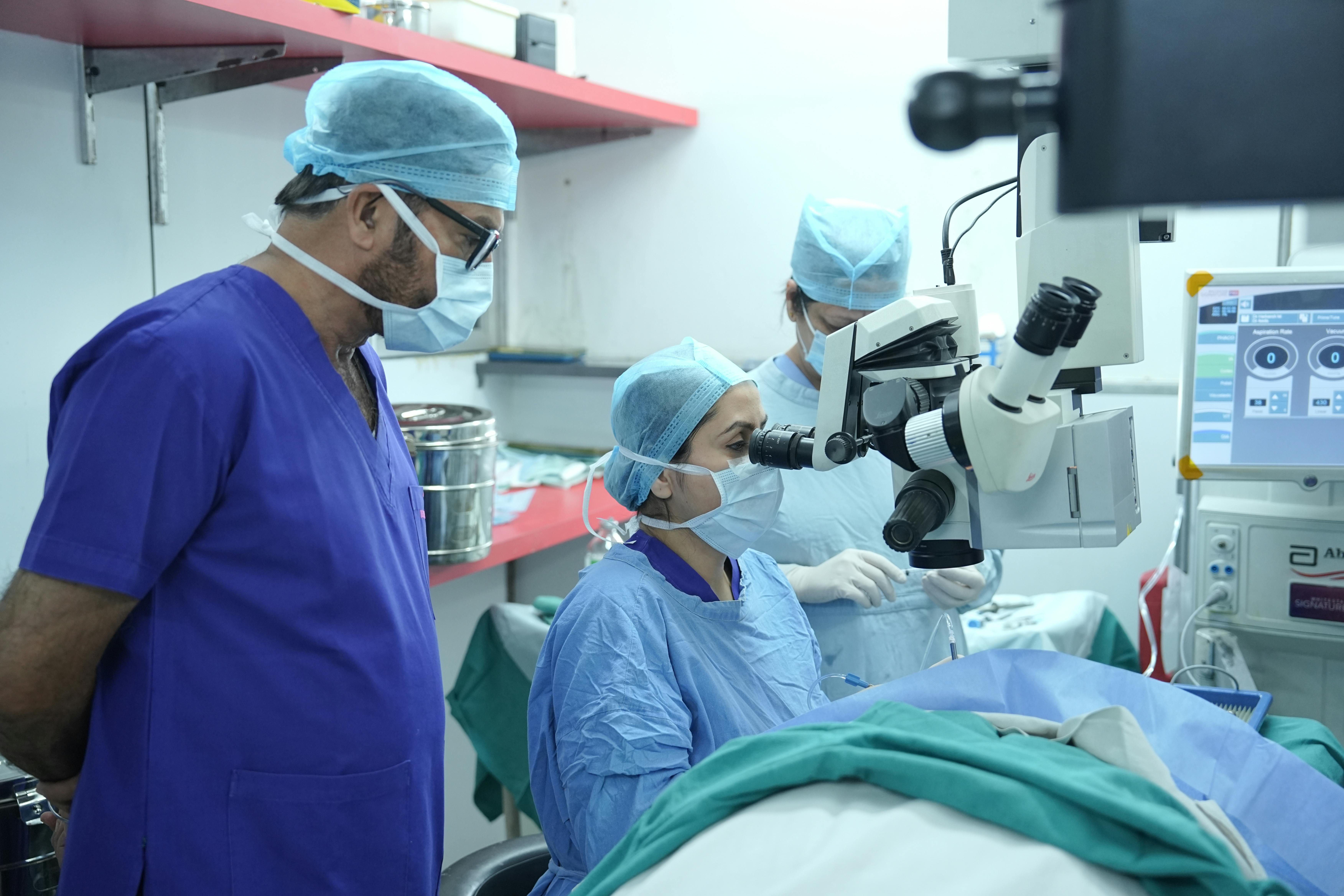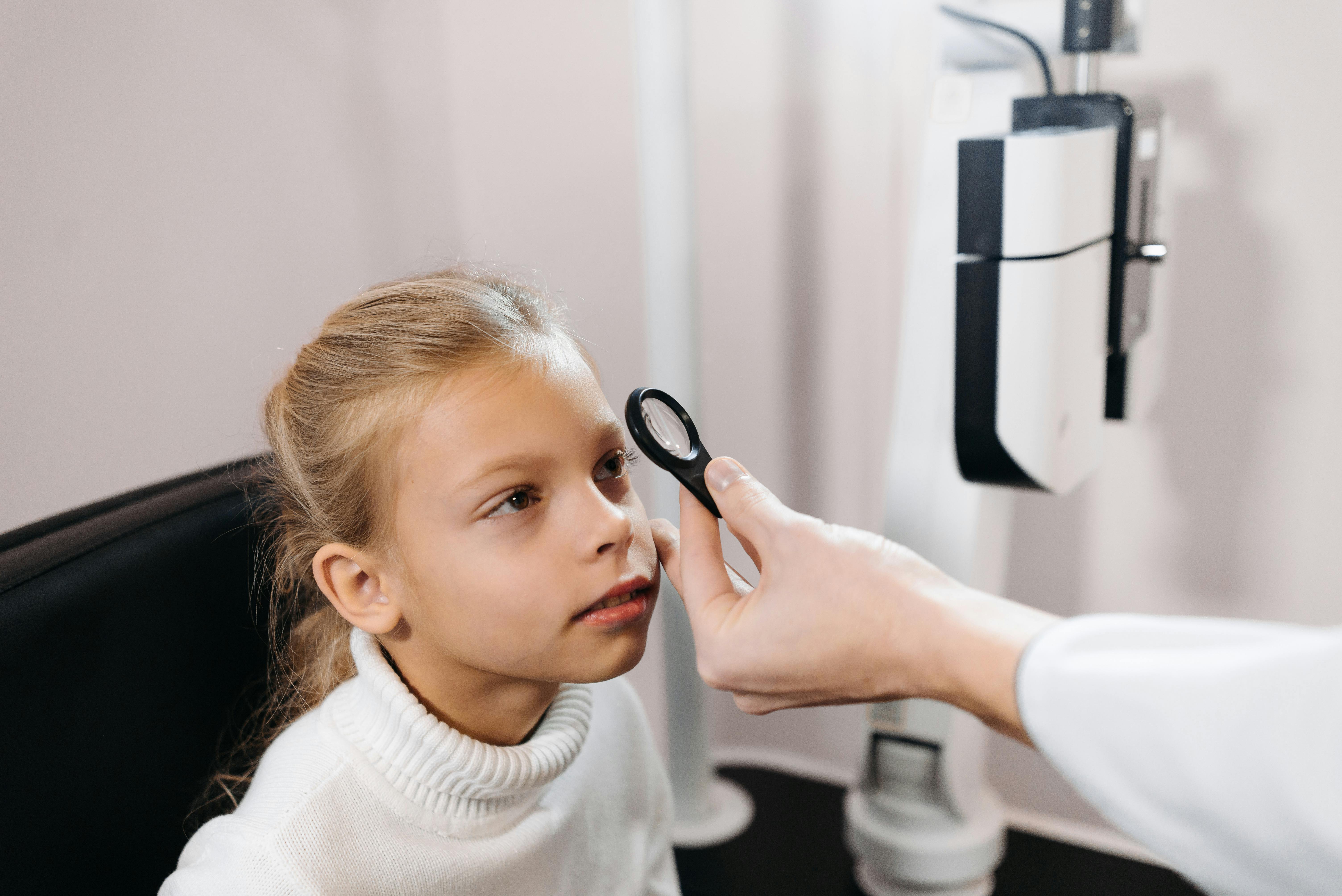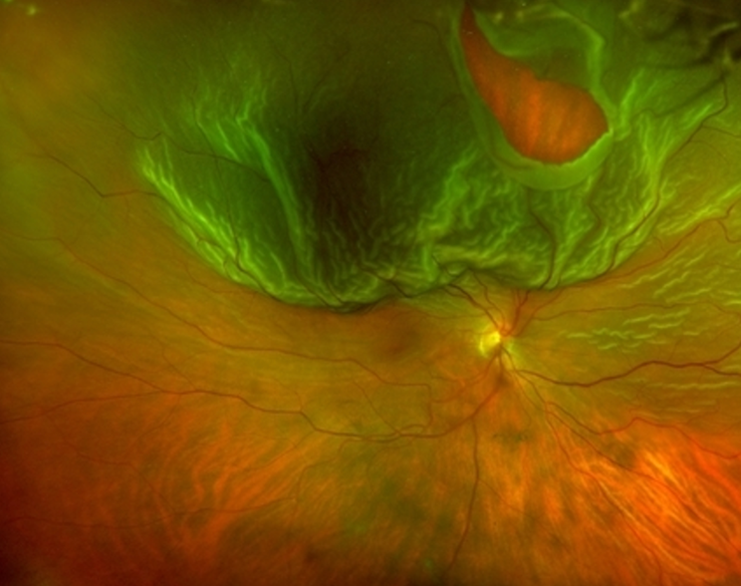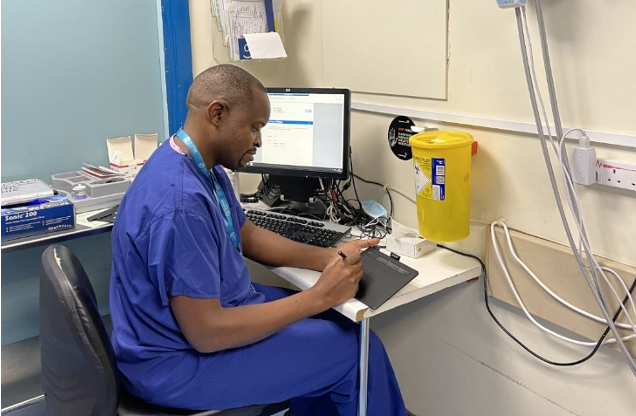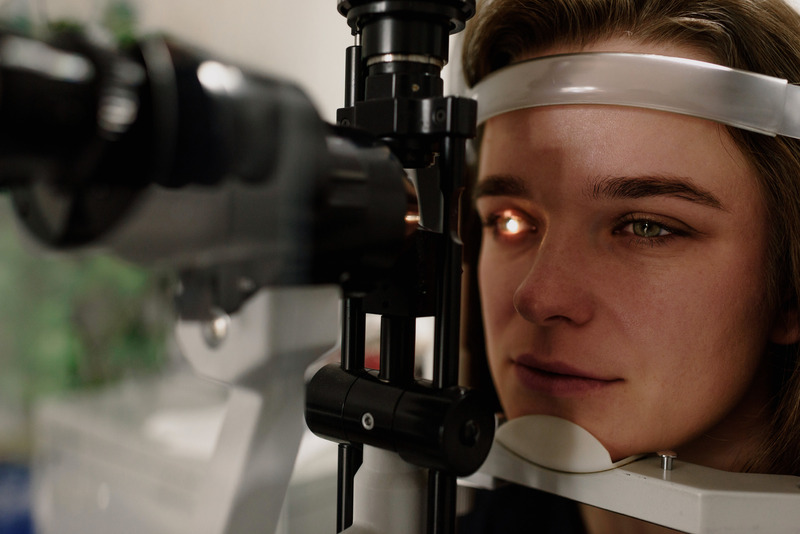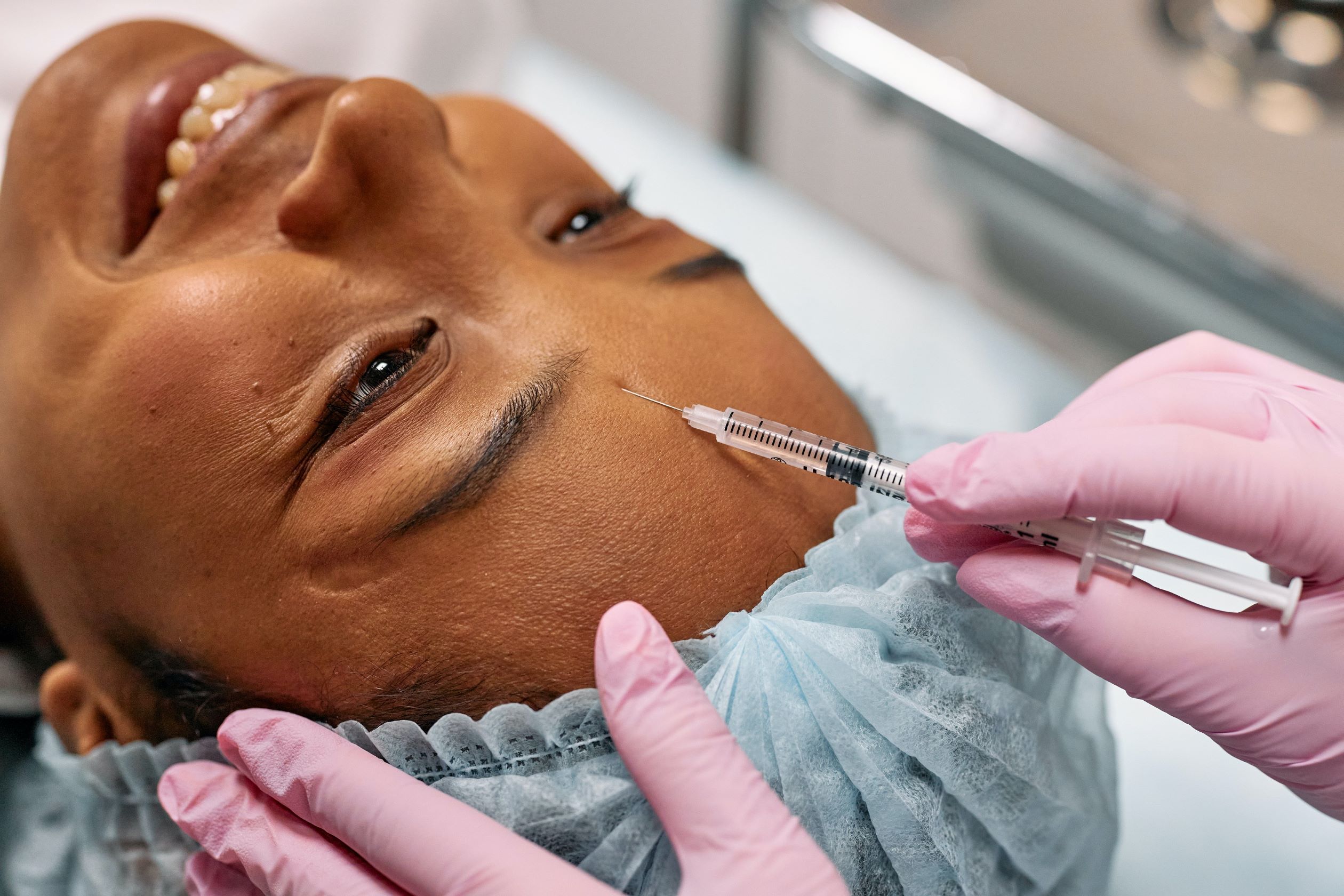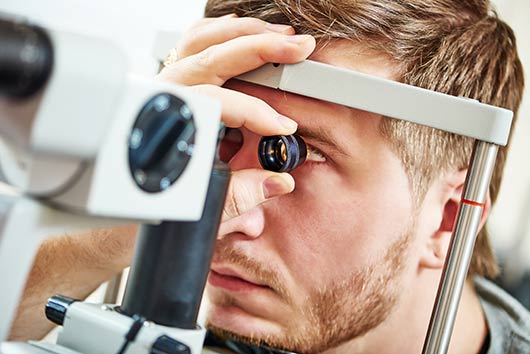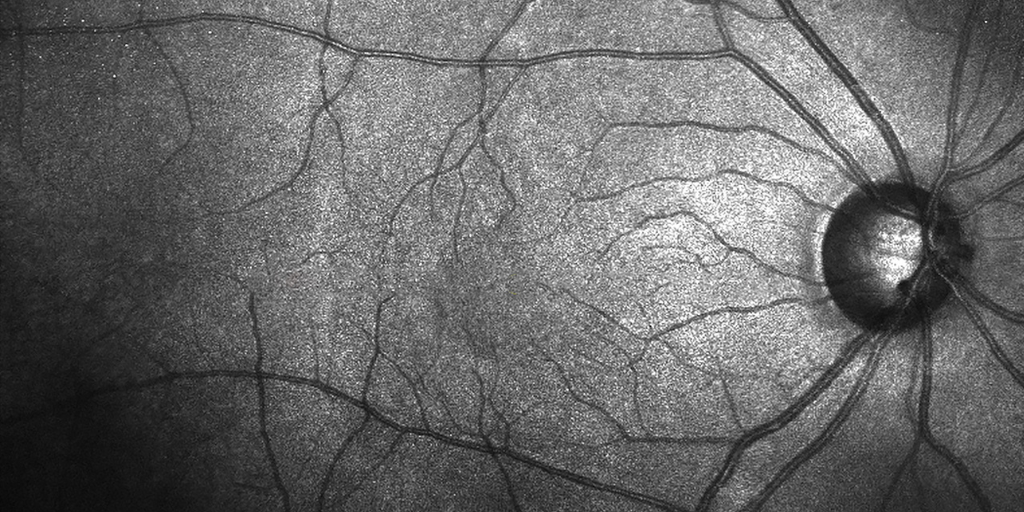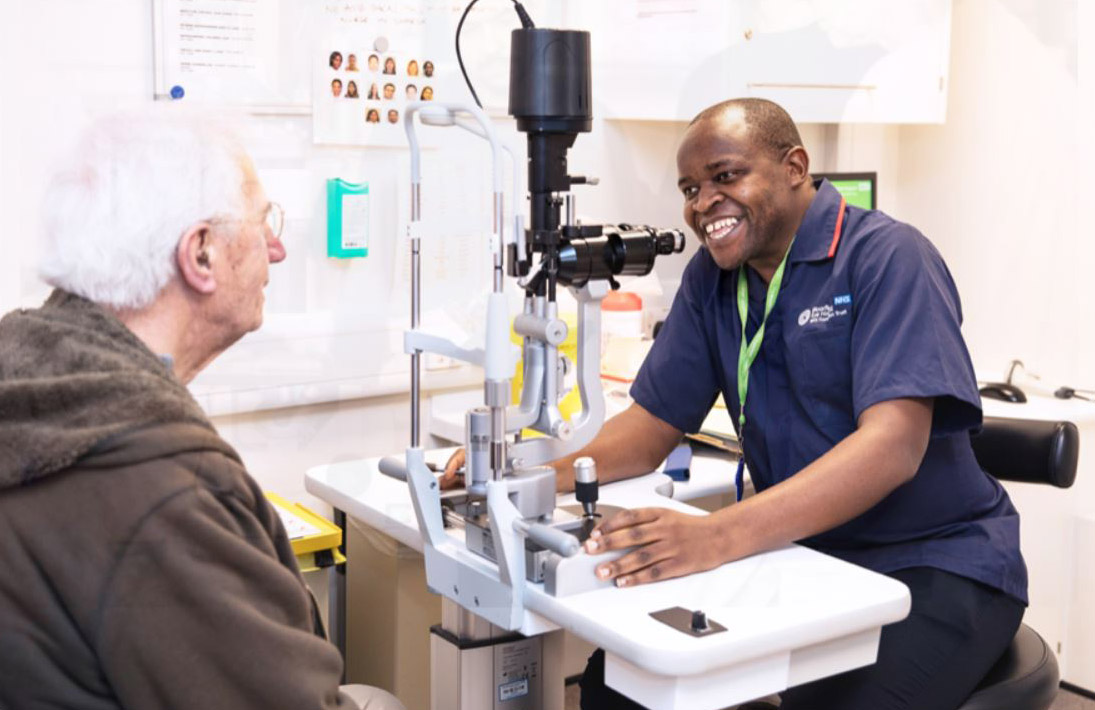
Courses for nurses and allied health professionals
We offer a wide range of short courses for nurses and allied health professionals, many virtual and self-paced to fit around your working commitments.
We continue to enable non-medical staff to learn new skills and take on responsibilities previously within the remit only of doctors. This ensures that everyone’s professional expertise is used to the best effect and provides improvements to patient care. For example, some nurses at Moorfields are now qualified to administer intravitreal injections to patients with wet age-related macular degeneration – a service previously provided only by medical staff – while others are trained to provide laser treatment for posterior capsular opacification, a common side-effect of cataract surgery.

This learning experience was a breath of fresh air; expanded my knowledge and career potential.

Our courses
Basic slit lamp and Goldmann tonometry study day
 Start Date: Wednesday 4 February 2026
Start Date: Wednesday 4 February 2026 £200.00
£200.00
 0 spaces available
0 spaces available
Fundoscopy training programme
 Start Date: Monday 2 March 2026
Start Date: Monday 2 March 2026 £1,500.00
£1,500.00
 0 spaces available
0 spaces available
Cataract, medical retina and disc assessment
 Start Date: Monday 13 April 2026
Start Date: Monday 13 April 2026 £400.00
£400.00
 23 spaces available
23 spaces available
Non-medical intravitreal injection course
This highly sought after course is aimed at clinicians working in an ophthalmic or medical retina setting, focusing on the treatment of age-related macular degeneration, retinal vein occlusion and diabetic oedema.
 Start Date: Friday 13 March 2026
Start Date: Friday 13 March 2026 £550.00
£550.00
 15 spaces available
15 spaces available
Gonioscopy course
 Start Date: Wednesday 18 March 2026
Start Date: Wednesday 18 March 2026 £350.00
£350.00
 5 spaces available
5 spaces available
New to Ophthalmology programme
 Start Date: Wednesday 25 March 2026
Start Date: Wednesday 25 March 2026 £695.00
£695.00
 7 spaces available
7 spaces available
Ophthalmic emergency study day
 Start Date: Saturday 25 April 2026
Start Date: Saturday 25 April 2026 £420.00
£420.00
 6 spaces available
6 spaces available
Biometry study day
 Start Date: Saturday 18 April 2026
Start Date: Saturday 18 April 2026 £350.00
£350.00
 0 spaces available
0 spaces available
Nd:YAG laser for posterior capsulotomy training for nurses and ophthalmic health care professionals
 £300.00
£300.00
Moorfields Manual Small Incision Cataract Surgery (MSICS)
 £595.00
£595.00
Paediatric eye emergencies for the non-paediatric ophthalmologist
 £175.00
£175.00
Oculoplastic nursing and allied professionals study day
This one day in-person course is designed to improve clinical practice and knowledge by highlighting new ways of working within this specialty. It discusses the management of various oculoplastic conditions and the role of nurses and other allied health professionals in delivering an excellent service..
 £200.00
£200.00
Eye emergencies for the non-ophthalmologist
 £250.00
£250.00
 0 spaces available
0 spaces available
Vitreoretinal emergencies: A practical guide for health care professionals
This one-day course, led by expert vitreoretinal consultants, is designed to equip allied health professionals with the essential knowledge and clinical skills to recognise, assess, and appropriately refer common and urgent vitreoretinal conditions.
 £175.00
£175.00
Lacrimal assessment for nursing & allied professionals study day
 £300.00
£300.00
 0 spaces available
0 spaces available
Medical retina pathways consent course
 £750.00
£750.00
 0 spaces available
0 spaces available
Moorfields complex strabismus day
 £200.00
£200.00
Botulinum toxin: Is it injector error, side effects or complications
 Start Date: Monday 18 May 2026
Start Date: Monday 18 May 2026 £250.00
£250.00
 0 spaces available
0 spaces available
Masterclass in external eye disease
 £450.00
£450.00
Masterclass in oculoplastic, lacrimal and orbital diseases
 £450.00
£450.00
Masterclass in ocular oncology
 £450.00
£450.00
Introduction to clinical ophthalmology
 £450.00
£450.00
Introduction to research methods in ophthalmology
 £650.00
£650.00
Masterclass in glaucoma
 £450.00
£450.00
The macula course
 Start Date: Monday 1 June 2026
Start Date: Monday 1 June 2026 £820.00
£820.00



